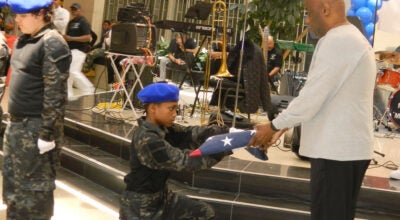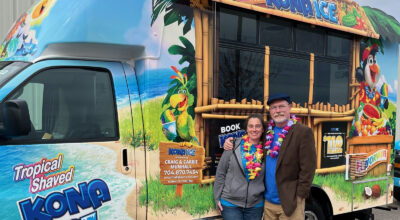Reed column: What’s in your bread box
Published 12:00 am Tuesday, December 1, 2009
As a young boy playing with friends on a summer day, I thought a bread box full of snacks was like an oasis in the desert. Whether we were taking a break from backyard baseball or an exhilarating game of tag (before the age of Nintendo), we would occasionally take a break at the nearest water hose and seek a snack from the nearest kitchen bread box.
We’d find crackers, chips or cake. If we were lucky, someone’s bread box would have Little Debbie oatmeal cakes. Jackpot!
Today, as a pastor, I have a different kind of bread box. It’s in the top drawer of my file cabinet. My bread box is a detailed assortment of community resources available for the members of the congregation and community I serve.
Marriage, individual, financial and vocational counselors; area recovery group meetings for alcohol, drug, or gambling addictions; home health and senior services; food and clothing banks; child, spouse and elder abuse reporting info; rape and suicide hotlines; and more.
The contents of my bread box are valuable resources I trust and share without reservation because I do not have, nor do I pretend to have, all the answers.
The Rev. Dr. Tony Everett, my seminary professor for pastoral care, encouraged us to start collecting community resources the day we arrived in the parish.
“When there is a crisis,” he said, “get other people involved.”
As the parents of a special-needs child, my family and I have learned personally from this wisdom.
Several years ago it became clear that we needed help ó which is a humbling admission indeed. Our bread box was empty. Or so we thought. Then others began sharing resources from their bread boxes. Soon, we learned about local agencies where speech and occupational therapy was available with screening. That led to specialized teachers and professionals within the school system. We discovered organizations and parents gladly offering themselves as conversation partners as we explored our growing bread box of resources. (You know who you are. Thank you.)
They have become personal resources of growth for our son. And for us. Our confidence was restored. We could not do it alone. We did not have to. Our bread box is overflowing.
In Mark 6:30-44, Jesus is presented with a problem. Five thousand people are hungry and the disciples believe the bread box is empty. Jesus answers, “You give them something to eat.”
Then he asks a powerful question: “How many loaves do you have? Go and see.” When they gathered what little they had, Jesus gave thanks and broke the loaves. All ate and were satisfied. With leftovers.
So, I ask you: How many loaves do you have? What resources are available to you? Who are the people around you that can walk with you, talk with you, and be the hand of Jesus Christ? What looks empty? Finances, employment, health, relationships, loneliness, uncertainty?
When faced with a seemingly empty bread box at a time when our need is great, the words of Christ confront us: “How many loaves do you have? Go and see.”
Upon further review, the grace and power of Jesus Christ finds us and fills us with what we need. With leftovers.
The Rev. Ken Reed is pastor of Concordia Lutheran Church in China Grove. Contact him at kenreed10@ctc.net.




